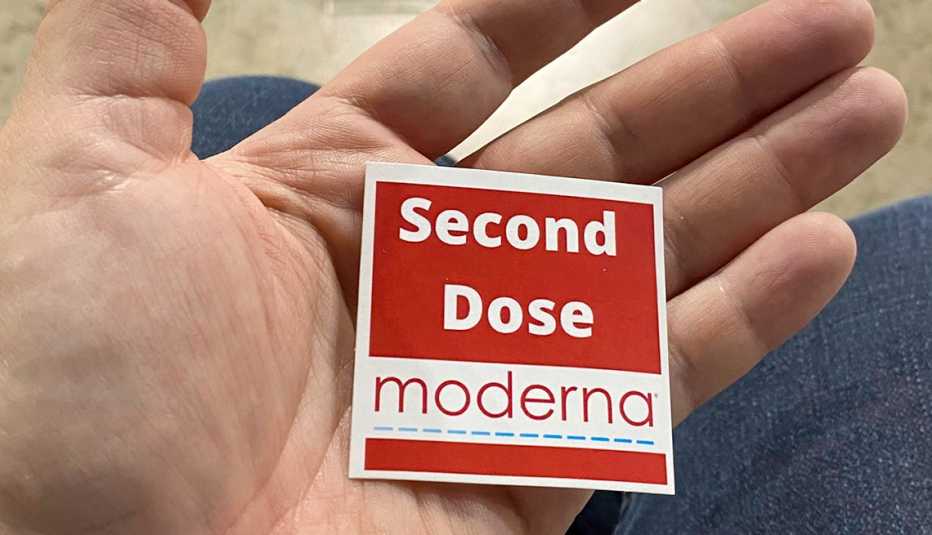Staying Fit


The majority of Americans who are rolling up their sleeves for the coronavirus vaccines are doing so twice. Both the Moderna and Pfizer-BioNTech vaccines — the most commonly administered COVID-19 vaccines in the U.S. — require two shots, several weeks apart. But not everybody is going back for their second dose.
A small but significant share of people (about 11 percent) have missed their second shot of a two-dose series, according to data from the Centers for Disease Control and Prevention (CDC) that looked at vaccine completion status through June 16. This number has been creeping up for months. In mid-March, a CDC report found 3.4 percent of vaccine recipients didn't go back for a second dose within six weeks of receiving the first; by late April, it had jumped to 8 percent.


AARP Membership— $12 for your first year when you sign up for Automatic Renewal
Get instant access to members-only products and hundreds of discounts, a free second membership, and a subscription to AARP the Magazine.
Reasons for not returning run the gamut. Earlier in the vaccine rollout, some had difficulty finding a second dose from the same manufacturer as their first; others lack transportation to vaccination sites. Side effects from the shots also remain a concern for many.
Still, “ensuring second dose completion of the vaccine is critical in helping to protect people from COVID-19,” the CDC says. Here's a look at why.
Longer immunity more likely with second shot
It's clear that the Pfizer and Moderna vaccines are powerful when it comes to keeping COVID-19 at bay. In fact, a recent CDC report found that these messenger RNA (or mRNA) vaccines were 80 percent effective at preventing a coronavirus infection after the first dose and 90 percent after the second.
When to get your second dose
- Moderna vaccine: 28 days after your first shot
- Pfizer-BioNTech vaccine: 21 days after your first shot
- Johnson & Johnson vaccine: Single shot only
Source: Centers for Disease Control and Prevention
What's still unclear, however, is how long that protection lasts. But what we know from other vaccines is that booster shots help immunity to stick, and the same is expected from the Pfizer and Moderna vaccines. In the two-dose COVID-19 regimen, the first dose primes the immune system; the second dose ensures “that immunity really takes and is longer lasting,” explains Mark Rupp, chief of the Division of Infectious Diseases at the University of Nebraska Medical Center.
Angela Rasmussen, a virologist at VIDO-InterVac and Georgetown University's Center for Global Health Science and Security, likens the mRNA vaccines to a college course that teaches your body to recognize and fight off an infection. The first shot — think of it as “COVID 101” — introduces your immune system to the coronavirus, but the second shot “is like advanced topics in SARS-CoV-2,” she says.
"Your immune system is more likely to retain that knowledge for a longer period of time. And those immune responses, although we don't know for sure yet, are more likely to be durable or longer lasting,” she adds.

































































More on health
What to Know About the Coronavirus Vaccines
Questions continue as millions of Americans get immunized
Pfizer, Moderna Vaccines Protect Frontline Workers in Real-World Study
New CDC data confirms effectiveness of mRNA shots at preventing coronavirus infectionsShould You Get Your COVID-19 Vaccination Card Laminated?
Tips for safeguarding the paper record of your coronavirus vaccination